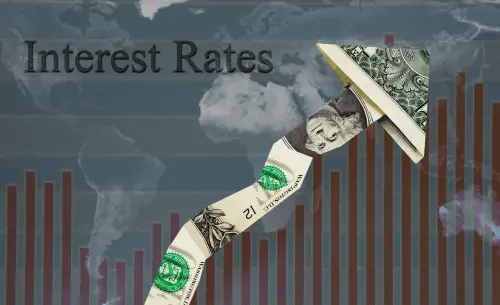As West Africa enters 2023, the region faces a new period of instability following recent coups d’état in Burkina Faso, Guinea, and Mali. These coups are occurring amid continuous conflict in the Sahel region, where violence displaced more than 2.5 million people and was projected to kill some 8,000 individuals in 2022. Hostilities have moved outside the Sahel and closer to previously peaceful areas. For instance, Benin and Togo witnessed deadly attacks in 2021 and 2022, terrifying citizens and contributing to growing evidence of broadening violent activities in the region’s coastal states.
These events can no longer be viewed as isolated incidents chalked up to foreign-funded extremists hiding in the desert. A significant and growing risk of regional instability recalls the calamities of the 1990s and 2000s, when civil wars engulfed Liberia, Sierra Leone, Guinea-Bissau, and Côte d’Ivoire—and Mali, Niger, and Nigeria faced insurgencies—which impeded economic growth and development. West Africa’s youthful population of 429 million, growing at 2.5 percent per year (according to the U.N. population division), risks getting stuck in a rut of insecurity and stalled human development.
Two recent changes exemplify the complexity and internationalization of the region’s insecurity: the arrival of the Russia-backed Wagner group in Mali at the end of 2021 (together with a disinformation campaign) and the cessation of France’s decadelong Operation Barkhane—which once saw 5,500 troops across the region—by November 2022. Regional stability has been deteriorating despite the presence of other external military forces, including the United Nations stabilization force in Mali, the European Union Task Force under the French command, and the combined Sahel states’ “Joint Force.”
Coups and bad governance
According to the Center for Systemic Peace, a research institute, West Africa’s five successful coups in the last three years is more than what the region has experienced at any time in the last thirty years (see Figure 1). Even though these five coups have occurred in just three countries (Burkina Faso, Guinea, and Mali), failed coups in Niger, Guinea-Bissau, and Mali—and an alleged coup attempt in the Gambia as 2022 came to a close—underline the breadth of state fragility.
Figure 1. Coups in West Africa, 1990-2022
Source: Center for Systemic Peace.
Note: Figure data visualized by the authors.
Poor governance is both a cause and a symptom of insecurity, with weak governance driving low government legitimacy and clientelistic politics, and serving as an excuse for coup makers. A look at West Africa’s governance indicators, as measured by the World Bank and reported in Figure 2, shows two important observations. One, West Africa’s scores are low on average, well below zero for an indicator that ranges from -2.5 to 2.5. Two, the subscore that has fared the worst over the past two decades is political instability and violence, including terrorism. Moreover, these governance indicators, particularly instability, are correlated with economic growth.
Figure 2. West Africa’s Worldwide Governance Indicators
Source: World Bank, Worldwide Governance Indicators.
Note: Data visualized by the authors. Governance performance scores range from -2.5 (weak) to 2.5 (strong).
As a result of the rising conflict and violence in the region, the possibility of conflict spillover to neighboring countries is elevated. Consequently, based on our analysis of data from Stockholm International Peace Research Institute (SIPRI), countries in the region have increased military expenditure eightfold to combat internal and external threats over the last three decades, which equates to a compound annual growth rate of close to 8-percent net of inflation. While this expenditure may be necessary to manage the threat of instability, it nonetheless represents a diversion from spending on essential social services such as healthcare or education.
Languishing growth and investment
Also, instability brings political risk, which drives investors away. According to our analysis of World Bank data, West Africa’s GDP grew, net of inflation, at a compound annual rate of 4 percent between 1990 and 2021, but on a per-capita basis, this came out to just 1.3 percent due to rapid population growth. Over that period, foreign direct investment has been minimal, with one exception corresponding to the iron ore price cycle of 2009-14; even when commodity prices picked up in 2020, investment has not seemed to follow. Furthermore, trade has been flat, and net official development assistance has been steadily declining.
The net result of insecurity, including its impacts through worse governance, higher military spending, and foregone investment, has affected West Africa’s average human development index, which as of 2021 had barely passed 0.5, significantly trailing other developing regions.
Changing the trajectory
So, what can the international community do to reverse the trends of insecurity in the region?
First, a comprehensive and politically-informed strategy for intervening to reduce fragility in the most unstable states is required. Rather than focusing on counterterrorism alone, this means investing in both political and economic constituencies to counterbalance the centralized rent creation that enables and encourages autocratic power politics. It also means considering the sociopolitical structures that support some of the highest fertility rates in the world precisely where the coup and coup attempts have taken place (with Niger and Mali taking two of the top three spots).
Second, bilateral and multilateral efforts should focus on containing the insecurity and preventing its spread to border regions and urban centers in neighboring countries. Here, a strategy is needed to invest in both state capacity, including an accountable and professional military, and legitimacy, which comes from functioning government service delivery and democratic mechanisms.
Third, international actors should partner with national and regional bodies to invest in alternative futures for the region. Diversified economies can generate more sustainable growth, broader influences in decisionmaking, and increased resilience in the face of external shocks. Creating gainful employment, particularly for the region’s youthful population and for women, may have a greater impact on reducing insecurity than military interventions. However, the changing climate, associated with a greater risk of conflict and internal displacement, adds another level of complexity.
Tomorrow’s global crisis?
West Africa risks being locked into a rut of insecurity and missed opportunities, with war economies spilling into the mainstream and progress reversing. With global attention focused on Ukraine, energy, and inflation, today’s peripheral wars risk becoming tomorrow’s global crises. Development and diplomatic actors cannot afford to abandon the increasingly fragile West African countries to strongmen and mercenaries.
The Brookings Institution is committed to quality, independence, and impact.
We are supported by a diverse array of funders. In line with our values and policies, each Brookings publication represents the sole views of its author(s).










Commentary
Will rising insecurity erase West Africa’s economic development gains?
February 3, 2023